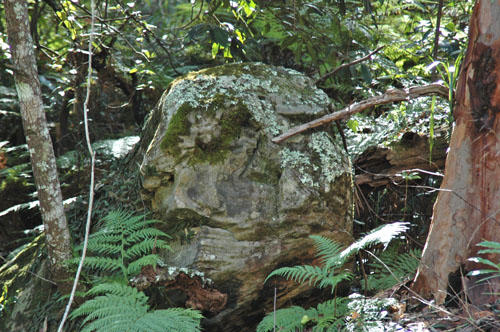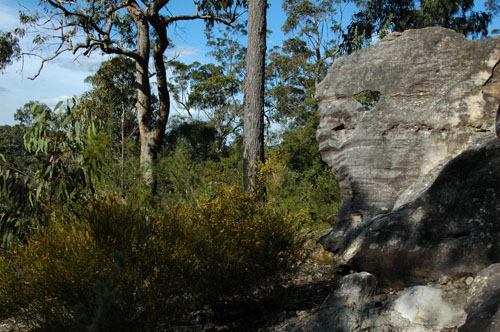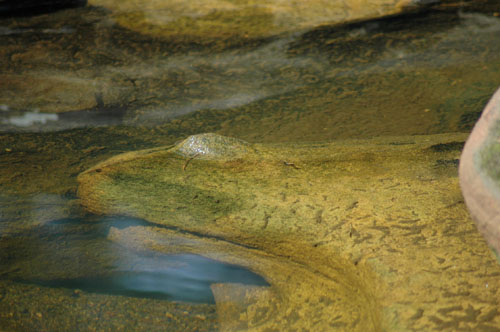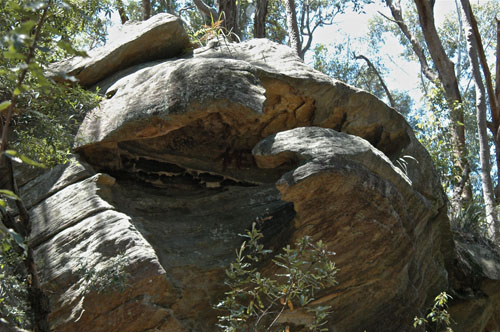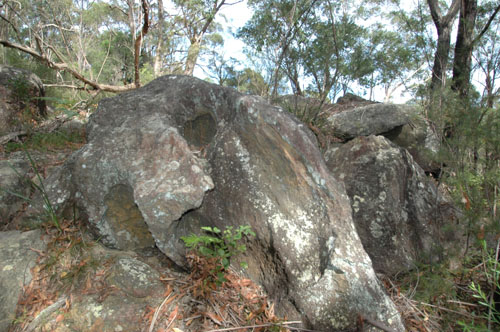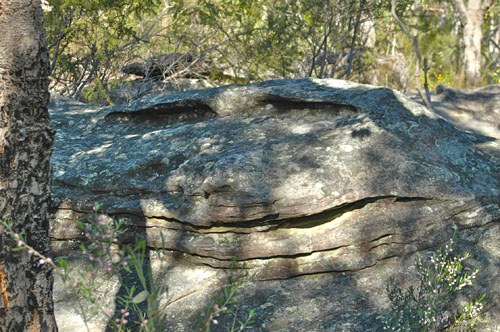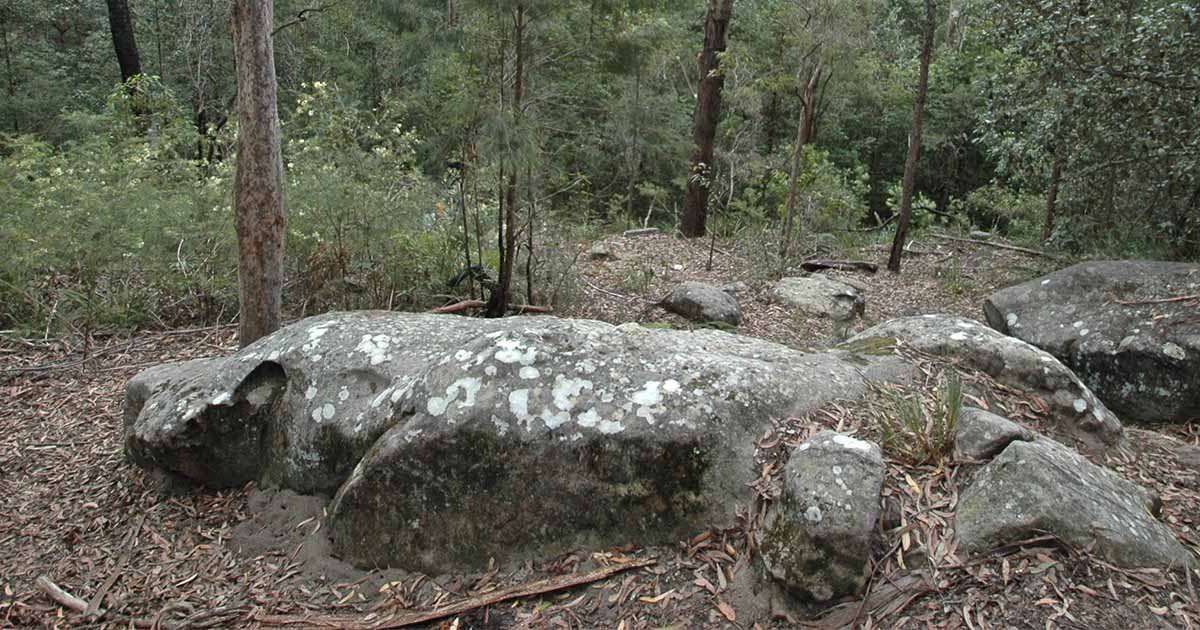
By Lachlan Turner
As you descend into bushland valleys along the many walking tracks in the Hills region, the presence of large rock formations becomes quite obvious.
Grey weathered sandstone bluffs are interspersed with wind eroded hollows resembling small caves.
Water too has a defining influence on the sculpturing of these rocky overhangs.
The continual breaking down of the sandstone provides much of the nutrients required by so many of the wildflowers and other plants growing in this special environment.
Sandstone ridges and slopes retain rainwater and slowly release moisture through the surrounding soils which in turn helps to nourish vegetation in the vicinity.
There are many plants, such as orchids, ferns and mosses, whose roots can actually grow on the surface of the rocks, taking advantage of small cracks in which to secure a foothold. Other plants depend on the close proximity of these rocky habitats taking advantage of the rock’s protection in which to flourish.
The ability of large rocky formations to create a protected and cool environment enables moisture loving plants such as fungi and ground covers the opportunity to flourish in leaf litter beyond the reaches of the sometimes hot sunshine.
On occasions when walking through such rocky places it is possible to be confronted with rock formations that can take on some form of recognisable shape, which could, without too much imagination, be likened to some living or imaginary creature. Several examples accompany this month’s column.
Next time if you are out walking along tracks bordered by large rocky outcrops, test your skill by trying to identify one of these rocky features. If you are not sure, move to another position and view your find from a different direction.

